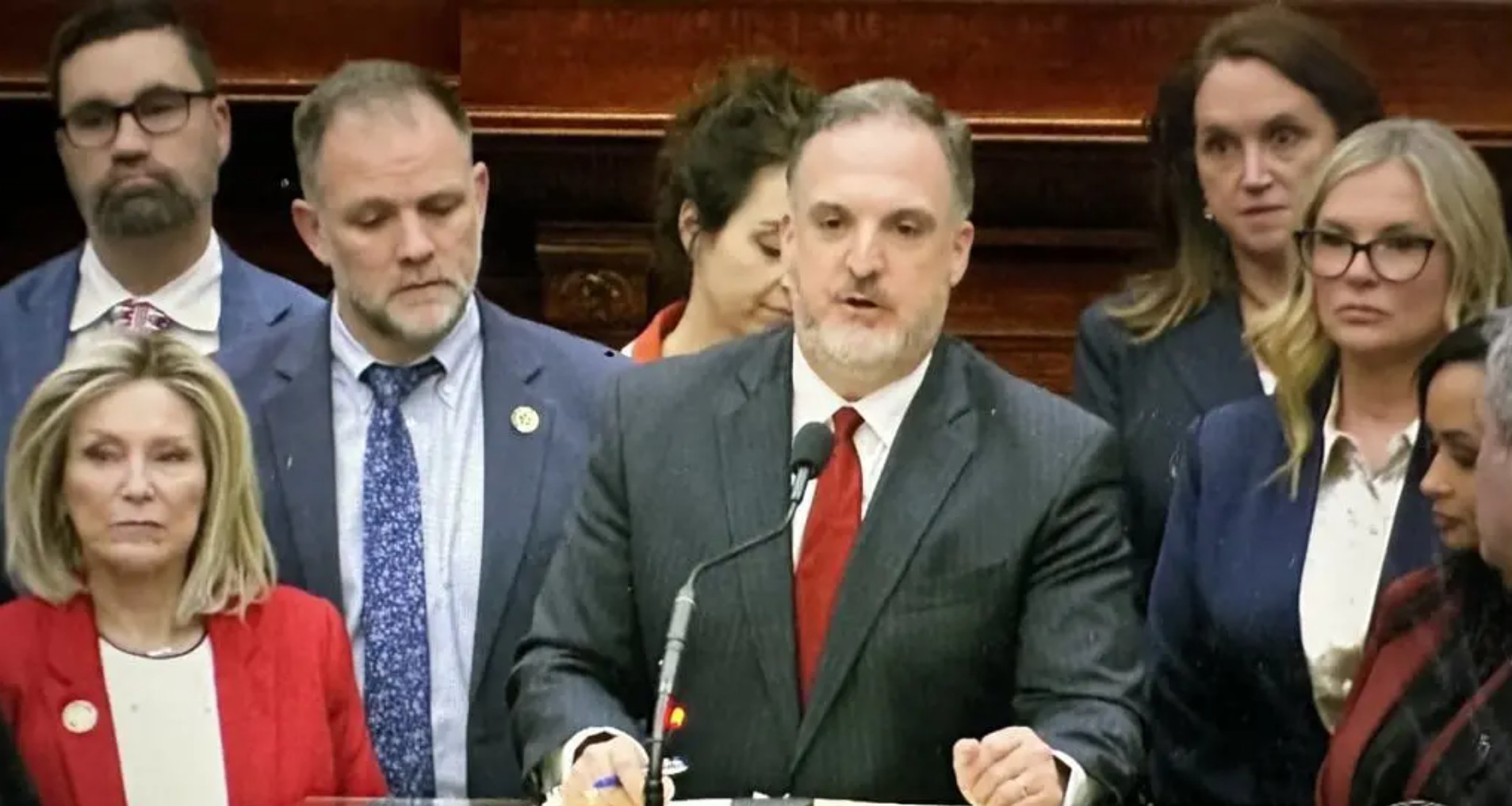Texas Moves Closer To Abolishing Public Schools’ Immunity in Sex Abuse Cases

By Erin Anderson | May 14, 2025
With school sex abuse cases on the rise, House lawmakers passed a measure to help Texas families hold school districts accountable by removing public schools’ immunity from civil liability when students are sexually abused.
House Bill 4623 by freshman State Rep. Mitch Little (R–Lewisville) would create “joint and several liability” between a professional school employee who abuses a student and the school district itself, and provide for recovery of actual damages and attorneys fees.
“We have a sexual abuse crisis in our public schools in Texas. It’s indisputable, and we can’t look away,” Little said Tuesday as he laid out his first bill on the House floor.
Little cited an analysis by parent advocacy group Texas Education 911 titled “State-Sponsored Child Abuse” that found thousands of cases of educator sexual misconduct were reported to the Texas Education Agency over a three-year period.
“Yet enforcement actions remain either inconsistent or nonexistent,” he said.
HB 4623 would remove sovereign immunity from school districts for acts and omissions by their professional employees that constitute crimes of sexual misconduct or failure to report suspected abuse.
Professional school employees are defined to include superintendents and other administrators, teachers and teachers’ aides, counselors, nurses, bus drivers, school board trustees, and “any other person employed by a public school whose employment requires certification and the exercise of discretion.”
Such employees would be unable to assert qualified immunity from civil liability in cases of sexual misconduct or failure to report.
Under the bill as amended, public schools would be liable for covered acts or omissions committed by a professional employee against a student enrolled in the school if the district is found negligent in hiring, supervising, or employing the employee.
Districts would be liable for up to $500,000 for each act or omission.
“In these cases, $500,000 is a bargain for the harm that is absolutely caused by these types of—really, rapes—improper relationships between students and educators,” said Little. “These children will be living with a lifetime of trauma.”
State Rep. Armando Walle (D–Houston) asked Little if HB 4623 would help deter future sex crimes against students.
“While I think there’s no question that the bill will create a deterrent effect. I think right now, there is not enough incentive for school districts in the state of Texas to solve the problem, because they will always be immune from suit until they are not.”
“We do not have the necessary tools to rein in this problem. The state of Texas has made it obvious that these problems are going to persist unless we do something,” he said.
“Right now, we have a harm without a remedy,” he continued, noting that lawmakers heard from “many, many people who had been sexually abused by public school employees here in the state of Texas” during a committee hearing on the measure.
“We’ve all been around schools, and everyone knows who the bad actors are, but the schools just don’t have enough incentive to get rid of these people,” he added.
Responding to questions from State Rep. Richard Raymond (D–Laredo), Little said multiple states have enacted similar laws during the past several years, including Pennsylvania, North Carolina, California, Michigan, Maryland, and New York.
“When you and I were kids going to school, more things were tolerated, fewer things were talked about,” said Little. “Now these things are coming into public view, and I think the problem is getting worse.”
“Based upon my experience in dealing with people who are serious sexual offenders, they typically have between 10 and 13 victims on average,” he added.
Some lawmakers raised concerns about the cost to taxpayers. Little clarified that taxpayers would continue to bear the cost of school officials’ professional liability insurance, which would cover the cost of any settlements.
State Rep. Jolanda Jones (D–Houston) asked Little why his bill doesn’t extend to private schools.
“Because they’re not immune from suit. In fact, I’ve sued some of them,” he replied.
Parents in Texas and elsewhere have been frustrated for years by schools’ lack of accountability for sexual abuse of students.
Over the past few years, an increasing number of Texas school employees have been accused of sex crimes involving students and children, with no consequences for the districts that employ them.
HB 4623 is a top priority of the Republican Party of Texas under Stop Sexualizing Texas Kids, but it received bipartisan support with 109 favorable votes on final passage Wednesday.
The measure now goes to the Senate for consideration and approval, but time is running short.
The regular legislative session ends June 2.
Erin Anderson
Erin Anderson is a Senior Journalist for Texas Scorecard, reporting on state and local issues, events, and government actions that impact people in communities throughout Texas and the DFW Metroplex. A native Texan, Erin grew up in the Houston area and now lives in Collin County.